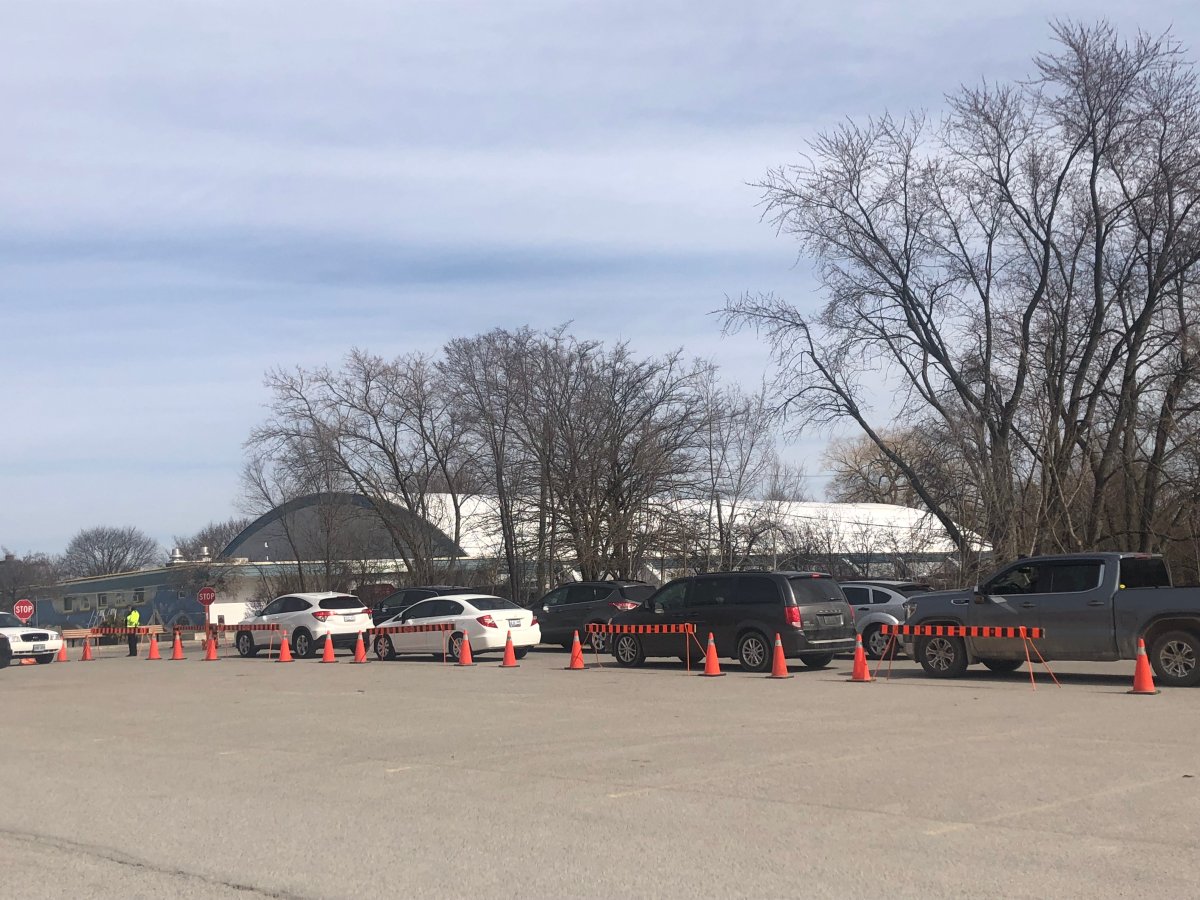One of London, Ont.’s two COVID-19 assessment centres is changing its hours of operation and will no longer be open on weekends.

According to the Middlesex-London Health Unit (MLHU), the change in hours is to better align with the number of people visiting the centre, and when during the week they visit.
From now on, the health unit says, the assessment centre located at Oakridge Arena will remain open Monday to Friday from 11 a.m. until 7 p.m.
Visits to the centre peaked on its second day of operation more than two weeks ago, but since then, fewer people have been coming to get assessed, said Dr. Chris Mackie, medical officer of health and MLHU CEO.
“Now, between the two sites, only about 180 total per day,” Mackie told 980 CFPL’s Mike Stubbs on Thursday.
“Especially on the weekends when the volumes are quite low, it’s not worthwhile to keep both sites open.”
The city’s second COVID-19 assessment centre, located at Carling Heights Optimist Community Centre on Elizabeth Street, will remain open seven days a week from 11 a.m. until 7 p.m.
The total number of confirmed cases in London and Middlesex stood at 79 on Thursday, including nine resolved cases and three deaths.

Mackie said the assessment centres have been great when it comes to keeping Londoners out of the city’s emergency departments.
“Getting some of the people who would otherwise go to emergency rooms, getting them some medical attention, making sure that they don’t need to go to the hospital, and getting some tested as well,” he said.
Mackie said it’s important that people continue to distance themselves physically from others and to self-isolate to flatten the curve, but to still get fresh air when possible.
“We did have reports over the weekend, on the Thames Valley Parkway, for example, so many people walking that it was impossible to keep appropriate distancing in place, and that is a challenge,” Mackie said.
“You know, I’m not at all discouraging people from being outside. Work in your garden or go for a walk. Just be absolutely certain you can keep your distance from other people.”
Questions about COVID-19? Here are some things you need to know:
Health officials caution against all international travel. Returning travellers are legally obligated to self-isolate for 14 days, beginning March 26, in case they develop symptoms and to prevent spreading the virus to others. Some provinces and territories have also implemented additional recommendations or enforcement measures to ensure those returning to the area self-isolate.
Symptoms can include fever, cough and difficulty breathing — very similar to a cold or flu. Some people can develop a more severe illness. People most at risk of this include older adults and people with severe chronic medical conditions like heart, lung or kidney disease. If you develop symptoms, contact public health authorities.
To prevent the virus from spreading, experts recommend frequent handwashing and coughing into your sleeve. They also recommend minimizing contact with others, staying home as much as possible and maintaining a distance of two metres from other people if you go out.
For full COVID-19 coverage from Global News, click here.












Comments